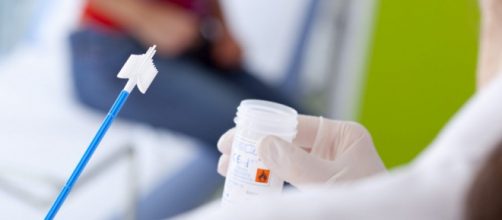A new study funded by #CancerResearchUK has shown women who receive the human papillomavirus (HPV) vaccine may only need three Pap smears in their lifetime.
Researchers from the Queen Mary University of London found that three smear tests at the ages of 30, 40 and 55 would offer the same protection against cervical cancer as would the 12 tests currently being suggested to women.
But before you rejoice, one thing should be made clear.
The end of Pap Smear tests does not mean the end of invasive examinations.
Gold standard of screening
For over fifty years, the Pap smear has been the gold standard of #cervical screening in women.
According to the #NHS website, since cervical cancer screening was introduced, cases have decreased at a rate of 7 percent each year.
Women between the ages of 25 and 49 who are registered with a GP are invited to a routine screening every three years as they are the most at risk. Women aged between 50 and 64 are called on only every five.
Any woman who is sexually active can develop cervical cancer, but virtually all related deaths are preventable if caught early.
Regular Pap smears are essential to a woman's health, but they aren’t exactly the highlight of a woman's calendar.
They can be extremely awkward, unpleasant even traumatising. And extremely necessary.
Most women forego feelings of stress and anxiety in the hope that by giving in to a few minutes of displeasure, they may be saved from a life-threatening disease.
While there is talk of self-collection as a possible option for some women, the procedure for having an HPV test will be the exact same.
The key difference is the way in which the test sample is stored and then analysed.
HPV testing
HPV is a common virus which can lead to many gynaecological cancers, especially cervical cancer.
The HPV vaccine protects women against the most dangerous forms of the virus. As well as significantly reducing the risk of developing cervical cancer, other studies have also shown a reduction in the risk of oral cancer.
Currently, tests are conducted to find abnormalities in cells taken during a Pap smear, but the proposed new test will check for the presence of HPV first and only check for abnormal cells if the virus is found.
New research, published in the International Journal of Cancer, comes ahead of changes to the cervical testing set to be introduced in the UK towards the end of 2019.
Alongside these changes, a new version of the vaccine will be rolled out and is projected to have a 90 percent success rate.
According to the #BBC News website, the current HPV vaccine reduces the risk of cancer by 70 percent.
If all goes to plan, women will no longer require a Pap smear test every three years, instead, the focus will turn to ensuring women are screened for #HPV.
Is double the time in between examinations a good thing?
While most women welcome the change, not everyone agrees.
A recent online campaign in Australia challenged the government's decision due to concerns that screening women later and less often could be dangerous because it runs the risk of missing rare cervical cancers not caused by HPV.
Yet medical experts refute these claims. They explain that rare cases of cervical cancer have always been undetectable by traditional Pap smears, and so the changes do not place greater risk on young women.
It is important that women continue to take up invitations for their cervical screenings.


